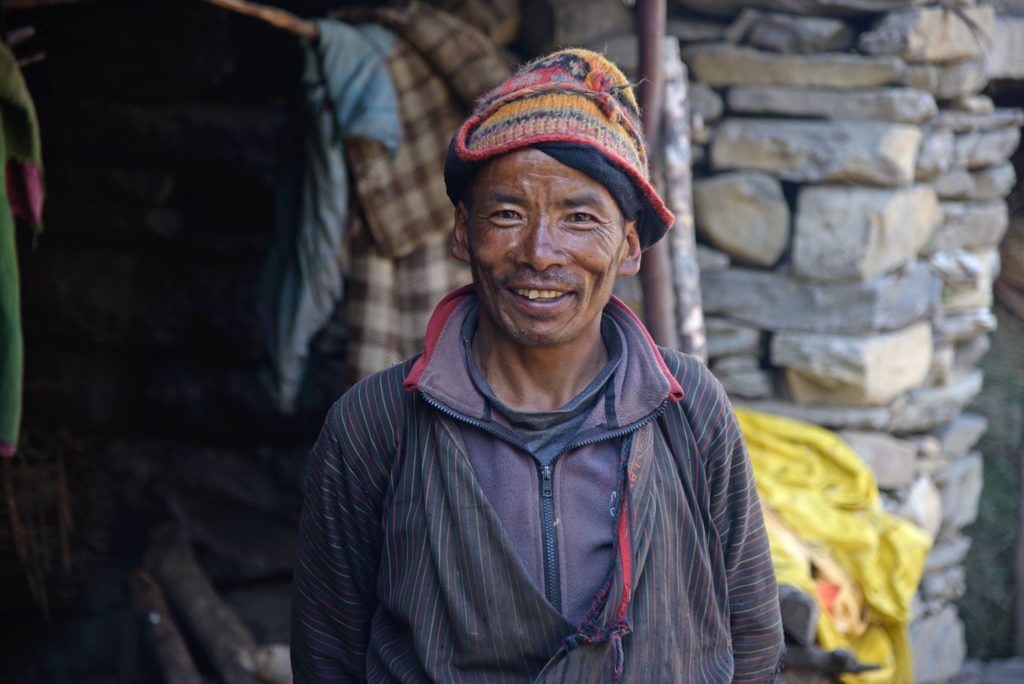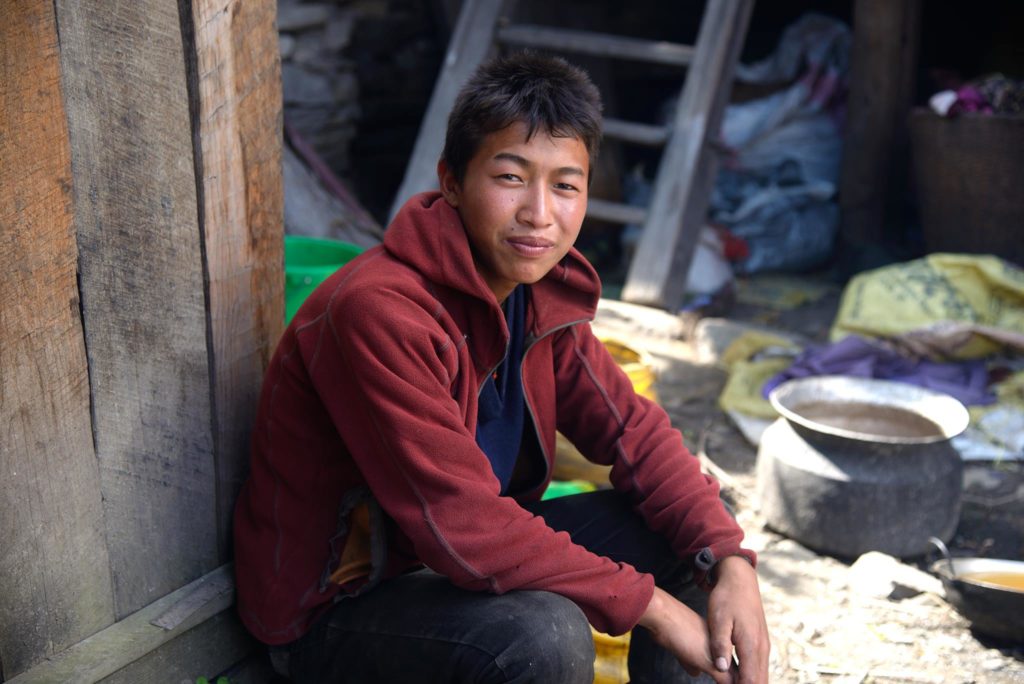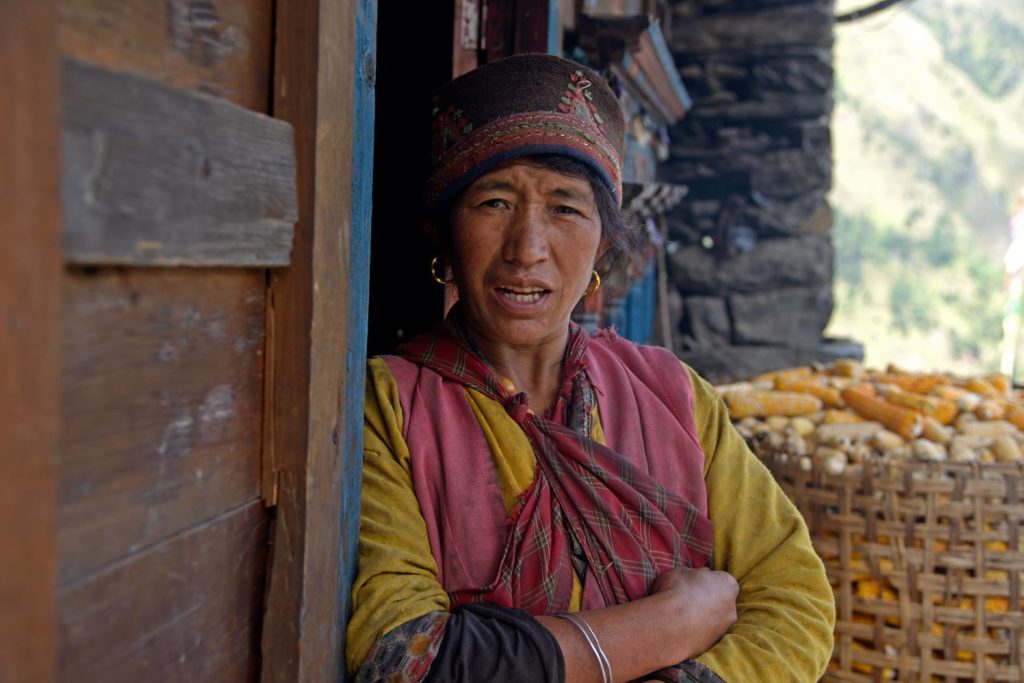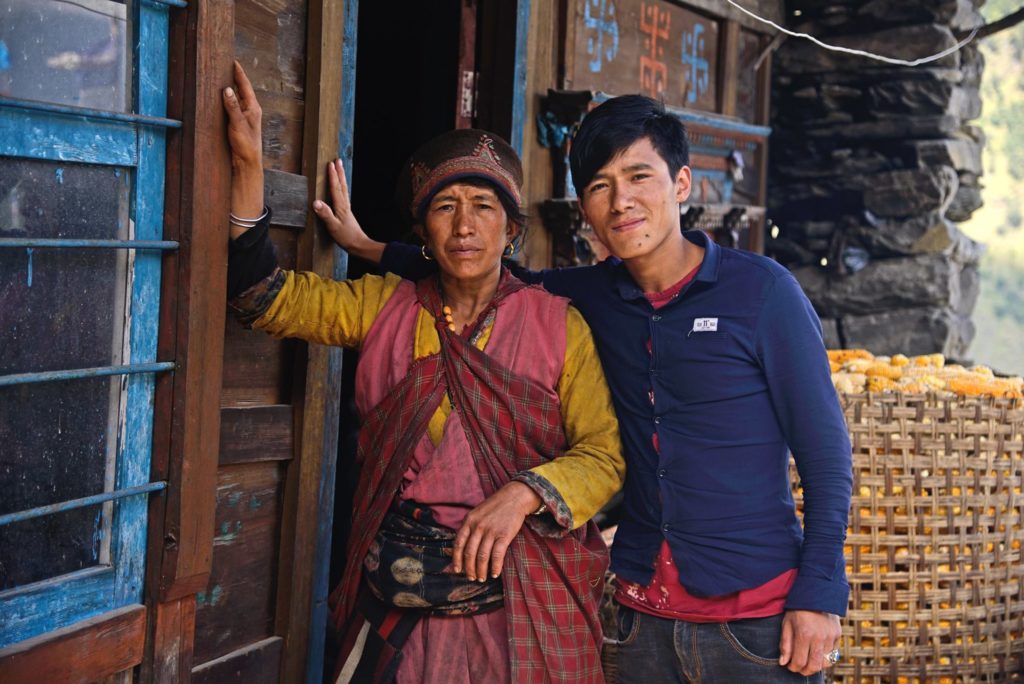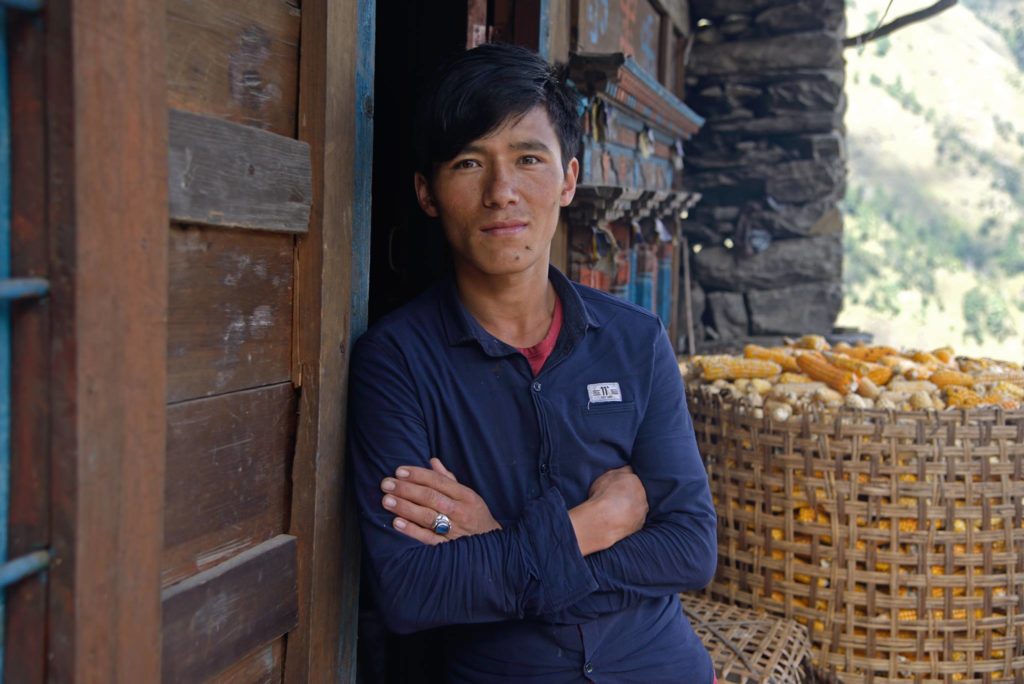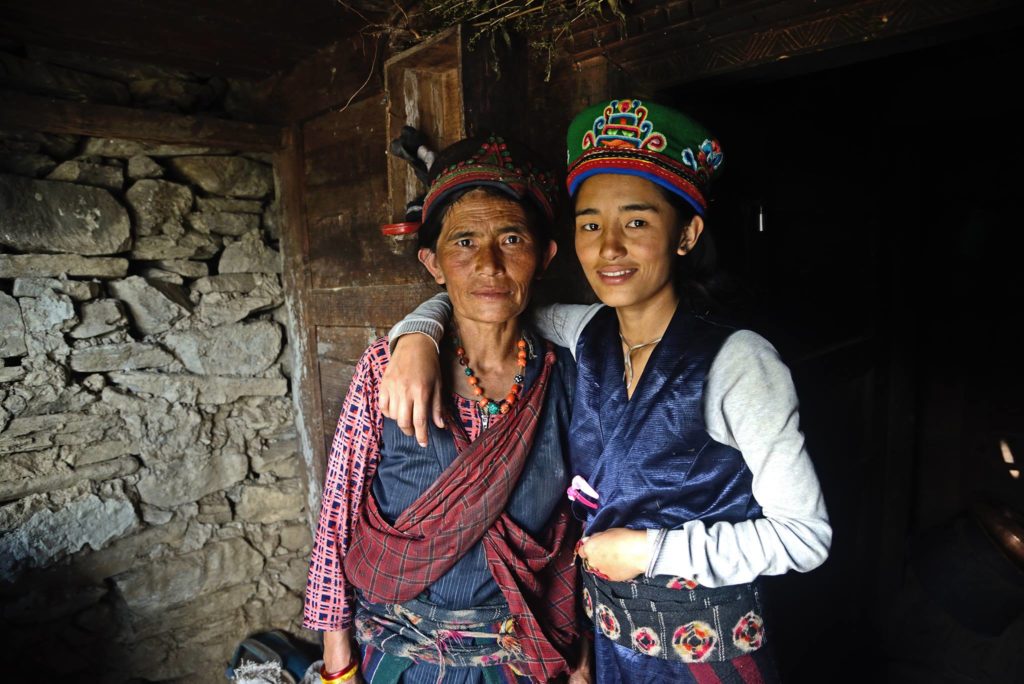
Bhomo Karto Tamang Gatlang, Rasuwa
“The riches of my father did not give me an easy life growing up. Father had three sheds. Yaks, Sheep and Goats. One for each kind. He had eighteen Yaks, two hundred sheep and I did not count the goats. And because the men in the family were not enough in numbers, he had to call on the unemployed boys of the village. He must have paid them well in kind. Two of them were responsible to carry the barley flour that mother and I prepared to the sheds, while the other seven worked as shepherds of father’s beasts. I remember feasts were quite common in my father’s house. The women of the house cooked everything. He would invite people from the surrounding villages for meat and they would come eat the meat, drink the alcohol, make merry and return. My mother was a strong woman who obeyed father and kept him happy. I helped her with preparing the barley flour from the time of harvesting and separating the hay before grinding. I remember waking up at three in the morning and carrying sacks of barley to the water-operated mill upstream. I must have been seven years old then, but I had the strength and darkness did not scare me. My responsibility was to make an equal number of bags of barley flour hand it to father’s shepherds. It was their ration for three days. And every three days I had to do the same task again. You must understand that rice did not exist in those ancient times. It was only potatoes and barley. These sacks were very heavy, now I think of it and I wonder how I carried it at such small age. I still have bruise marks from carrying the load on my back. But that was life. It is not that the men did not work but they had it easy. They had more good times than the women did. The women always toiled. So you must understand that I did not go to school, there was hardly any time left from the work of the house. After I got married and left father’s house, I have had a similar life. There is no change. The animals are not so large in numbers but I am always working – cutting grass, taking animals to pasture, planting millet and maize and raising the children. Where would I go? I have not seen any cities until today. My children have. My husband and I noticed how the learned men and women talk and dress. And because we want our children to be like them, we decided to send them to school. I know my life will end the way it is, but I want my children to experience life which lies beyond these mountains. For me, I do not know what lies beyond these mountains.”
